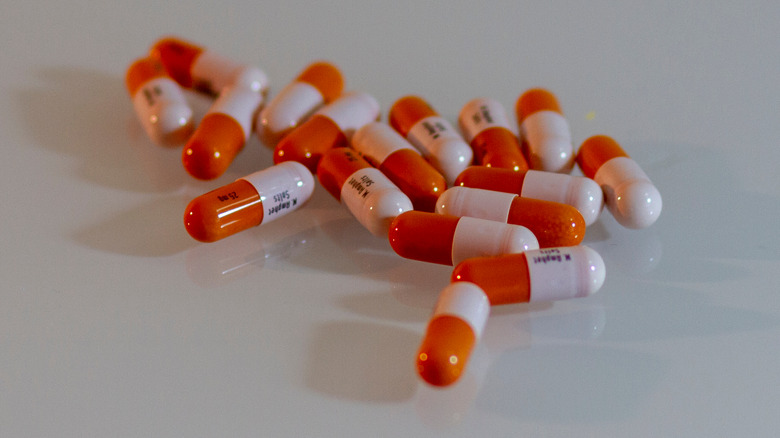What Really Happens When You Take Too Much Adderall
Adderall is the brand name of a prescription medication used to treat Attention Deficit Hyperactivity Disorder (ADHD) and narcolepsy. It contains a combination of amphetamine and dextroamphetamine, which belong to a class of drugs that stimulate the central nervous system (via Insider). These active ingredients work by increasing activity in the central nervous system, which controls most of the functions of your brain and spinal cord.
As a result, taking Adderall can improve focus, increase alertness, reduce restlessness, increase your heart rate and blood pressure, and improve your attention span. Adderall also increases the release of dopamine and norepinephrine, two neurotransmitters in the brain. This may help children and adults with ADHD develop better work habits, increase academic performance, and improve social skills. While Adderall may not work well for everyone, it has been shown to be an effective treatment for 70% of adults with ADHD and up to 80% of children.
Can you overdose on Adderall?
Because Adderall is classified as a Schedule II controlled substance by the U.S. Drug Enforcement Administration (DEA), taking the correct dosage is crucial. While the average dose can range between five and 60 milligrams per day, most adults begin on 20 milligrams a day, while teenagers are usually prescribed 10 milligrams to start (via Healthline).
Taking more than you've been prescribed can result in dependence, and it is possible to overdose. "When taken as prescribed by a physician, there is little risk of addiction, but if taken recreationally for the 'euphoric' effect, the risk of abuse will be enhanced," toxicologist Dr. Maria Pino, course director for pharmacology at Touro College of Osteopathic Medicine, explained to Live Science.
So how do you know how much is too much? A lethal dosage of Adderall ranges between 20 and 25 milligrams per kilogram of weight. In mild cases of an overdose, you may experience confusion, stomach pain, and nausea. More severe cases may result in hallucinations, tremors, heart attack, and even death. If you think may be experiencing an Adderall overdose, seek emergency medical care immediately.
If you or anyone you know is struggling with addiction issues, help is available. Visit the Substance Abuse and Mental Health Services Administration website or contact SAMHSA's National Helpline at 1-800-662-HELP (4357).


